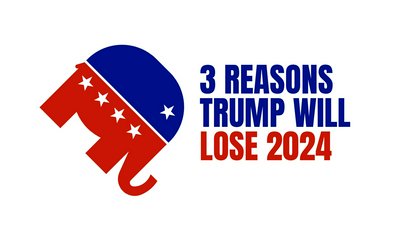economyXXX
Macron’s Gamble Looks Set to Pay Off: After First Round of the 2024 French Parliamentary Election
Emmanuel Macron took a gamble after the European elections last month with the snap election. After the first round, it appears to me that this high-stake gamble is likely to pay off with a strengthening of his grip on power.
Published by Dr Jiulin Teng on 03 Jul 2024

Emmanuel Macron took a gamble after the European elections last month, dissolved the parliament, and called for a snap election. After the first round, it appears to me that this high-stake gamble is likely to pay off with a strengthening of Macron’s grip on power.
The populist National Rally party (RN) has been gaining momentum in French politics even before Emmanuel Macron first became president. In fact, Yanis Varoufakis, the former Greek finance minister, states that Macron has a symbiotic relationship with Le Pen and could not have been elected if the National Front, the RN before its rebranding in 2018, were not strong. The same dynamics is set to play out again, now for the National Assembly.
Even though news outlets commonly sensationalize the lead of National Rally, the party has secured only 39 seats of the 577 total. Indeed, close to 90% of the seats will be determined only in the second round. This is where things get complicated for RN.
Many outside commentators, usually conservative or nationalist, find themselves in agreement with the policy rhetoric of Le Pen’s party. Because they are against the “big bad monsters”—the EU and the American war machine—they can appear more authentic. These commentators are anti-EU, anti-immigration, and sometimes pro-Russian. While these are valid policy points, they are not the values most commonly held by the French people.
If France had the first-past-the-post voting system like it is in Britain, where a plurality of the votes in a single round would decide the results, the National Rally might be winning the legislative elections this year. However, with the two-round system, the second round becomes a referendum on the RN. That is, the French voters are being asked a simple question: Do you want Le Pen or someone else? It appears to me that the majority will answer No.
A similar dynamic played out in the last National Assembly election, though it was a referendum on Macron. The French people voted No. In other words, Macron and his party win only when the election is about Le Pen and her party.
Since the left-wing New Popular Front will split seats among its constituent parties and will be more anti-RN than all other political factions, the effective control of the National Assembly by Macron after this election is very likely to grow.
Certainly, this will not fix France’s problems. Neither a populist majority in the parliament nor a Le Pen presidency would do that. In fact, the nationalist rhetoric is a distraction: France is one of the main beneficiaries of the EU, which was set up by former French leaders to serve its interests. The economic hardships that France and the EU face have many origins and are too complex for simple answers. While some of RN’s policies, such as opposing French military intervention in Africa, are humanitarian, almost none of them would not exacerbate the hardship in France.
As a disinterested outside observer, I believe between the two Macron is better for France objectively, even though his victories are all thanks to the French voters believing Le Pen to be worse.



